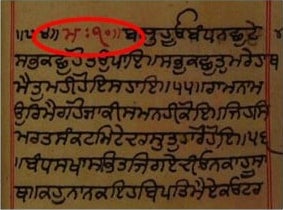Discover the spiritual journey of Sant Pal Singh Arif, a Sikh mystic and poet from Punjab, known for his Sufi-influenced works with spiritual insights.
Explore Asa, a key raga in Sikh music, known for its mystical mood and significance in the holy Guru Granth Sahib. Perfect for devotional melodies.
Explore the life of Thakur Nihal Singh, Sikh theologian and musician, known for his kirtan and missionary work, spreading faith through music and discourse.
Discover the significance of 'Mahala' in Guru Granth Sahib, denoting the spiritual lineage and authorship of Sikh Gurus starting with Guru Nanak.
Explore the life of Manga Bhai, a devoted musician of Guru Nanak. Discover his passion for Gurbani as described by Bhai Gurdas. Learn more about his legacy.
CHAUNKI or Chauki, lit. quarter, a four footed wooden platform upon which sat the holy choir to recite the sacred hymns in a gurdwara or at a gathering of the devotees. The term chaunki also refers to a session of kirtan or hymn singing, the number of singers at such sessions commonly being four, nowadays usually three, playing different instruments. Kirtan is a popular form of worship among Sikhs. At all major gurdwaras at least four kirtan chaunkfs are held. At the central shrine, in Amritsar, the Harimandar, kirtan goes on all the time, from 2.45 a.m. to 9.45 p.m.
Discover Bhai Phumman Singh, a celebrated 19th-century Sikh ragi from Punjab, famed for his kirtan and prowess in classical Indian music.
DHADI, one who sings vars or ballads to the accompaniment of a musical instrument called dhad, a drumlet held in the palm of one hand and played with the fingers of the other. A concomitant of dhad is the sarangi, a stringed instrument. Dhadis, patronized by chiefs and princes, eulogized the deeds of valour of the members of the families they served or of popular folk heroes. In the Dasam Granth (Charitra 405), their origin is traced back to the mythological combat between Mahakal and Suasvirya, the first ancestor of the dhadis being born of the sweat of the former.
Explore the Phunhe poetic meter in Guru Granth Sahib, expressing deep devotion and longing for the Divine. Discover its origins and spiritual significance.
DHUNI, from Skt. dhvani meaning sound, echo, noise, voice, tone, tune, thunder, stands in Punjabi generally for sound and tune. In the Guru Granth Sahib, the term appears in the sense of tune at the head of 9 of the 22 vars (odes) under different ragas or musical measures. Directions with regard to the tunes in which those vars were meant to be sung were recorded by Guru Arjan when compiling the Holy Book. The classical system of Indian music had well established tunes and corresponding prosodic forms; but the var, being basically a folk form, did not have any prescribed order.




